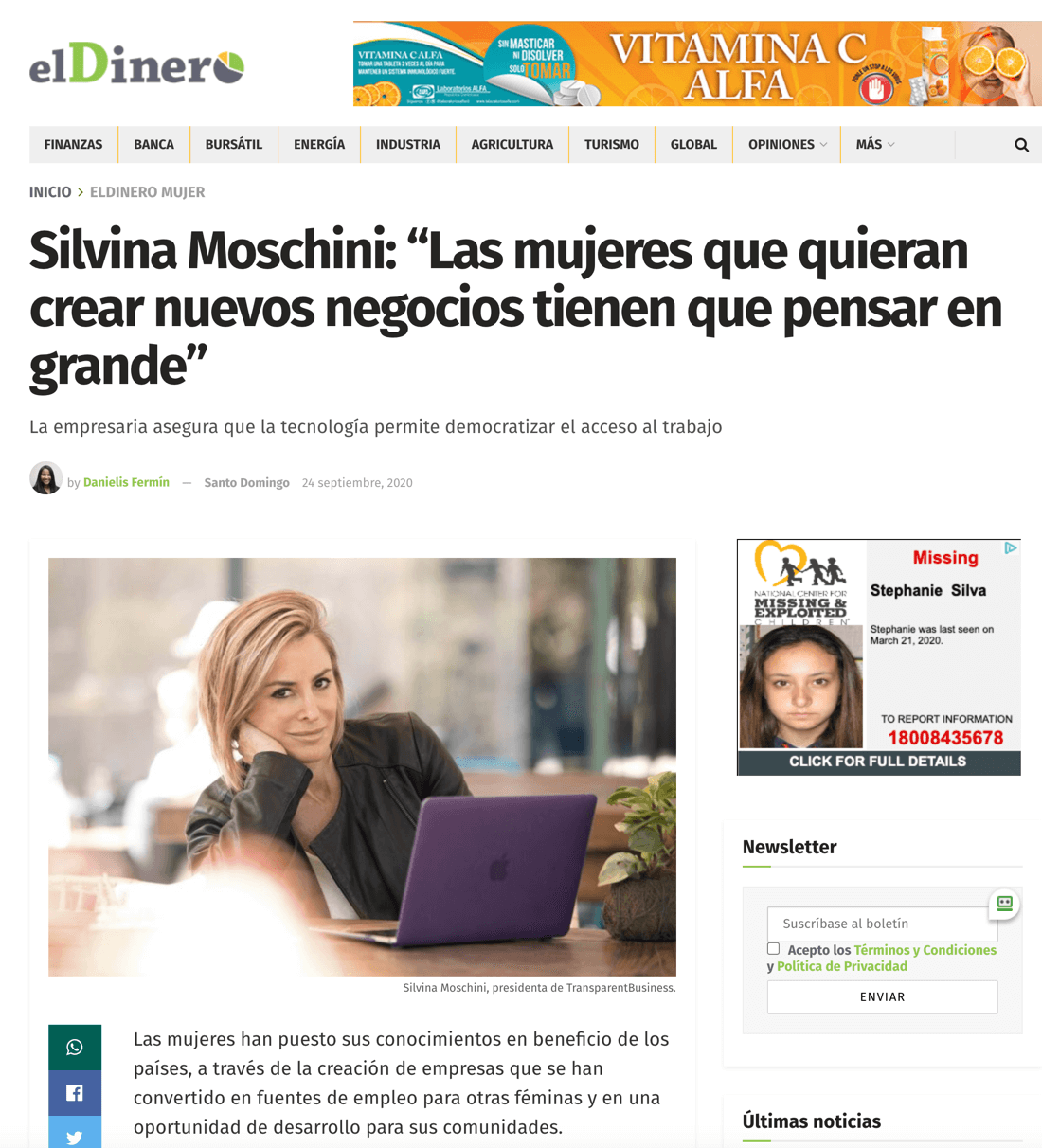elDinero (The Money) published an interview with Silvina Moschini, a co-founder, Chairwoman and President of TransparentBusiness. The text sand the translation to English can be found below.
Silvina Moschini: "Women who want to create new businesses have to think big"
The businesswoman assures that technology allows democratizing access to work
Danielis Fermín Santo
24 September, 2020
Women have put their knowledge to the benefit of the countries, through the creation of companies that have become sources of employment for other women and an opportunity for development for their communities.
"The female talent is enormous and women began to break through in a forceful way," says Silvina Moschini, president of TransparentBusiness, a company that promotes transparency in public and private contracting.
"One of the reasons is that many women are being encouraged to undertake because technology allows them to create exponential businesses, surrounding themselves with the best available talent, no matter where they are and with very little initial investment," Moschini highlights.
The creator of SheWorks! points out that currently “women who want to create new businesses have to think big. Strong minds, firm heels and a focus on overcoming old conditions, such as that we do not know how to negotiate or lead companies”.
Recommends entrepreneurs to stay in constant training, especially in digital skills that allow them to embark on the creation of new and innovative businesses.
Moschini, a communicator by profession, assures that to create technology companies it is not always necessary to have exclusive training in the area. "I created a technology company, since women with leadership skills can create multidisciplinary teams, which can have technologists as part of the team to carry out what requires technology expertise and lead technology teams efficiently."
The Argentine businesswoman recommends leaning towards the creation of technology companies that help solve social problems. “We can do it even if we don't have engineering degrees or know how to write lines of code. Look at my case: I have a 100% technological company and I am an expert in communications!”.
"My advice for women entrepreneurs is to dare to be assertive to get the attention they need to take their business to the next level," she says.
She adds that “it is important that they learn to turn the rules around. I'm not saying break them, but be creative, find a way to solve challenges one by one. Let them use their empathic powers to build a network that opens doors and catapults them to success. "
“But the most important thing of all is that they find their passion and turn it into an idea of impact. It helps me to think that I am transforming the industry to provide opportunities for millions of women,” she says.
Technology has become the ally of women, since it has allowed them to expand their job opportunities and has opened the doors to create successful companies.
Silvina assures that "technology is the great equalizer of opportunities and democratizes access to work, because people can show themselves to the world by how they work and not by who they are."
However, technological advances have not yet made it possible to close the gender gap that exists in most countries. "Women face great challenges in a market where there is still enormous inequality of opportunities," says Moschini.
The Argentine writer and businesswoman points out that digitizing company processes allows creating and managing "talent clouds with people from all over and making occupations more flexible."
She argues that making these changes in companies will also provide opportunities for mothers who must leave their jobs to dedicate themselves to raising their children.
“Currently, more than half of women abandon their jobs when they become mothers because they cannot reconcile their work and personal life due to rigid models that currently associate work with a place to which they go and not something that is done”, she specifies.


